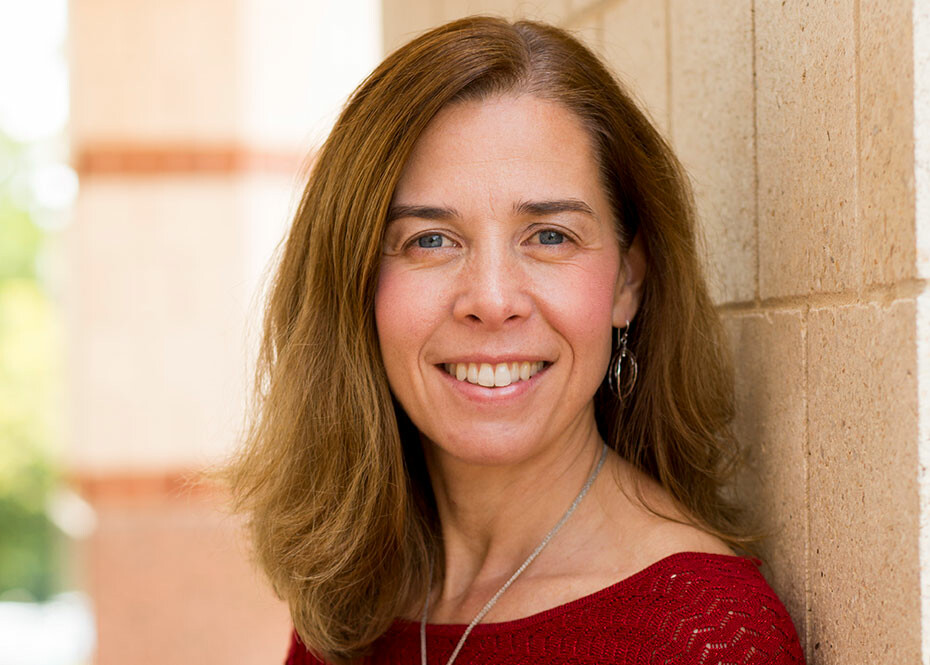Lemons receives presidential award

Jul 21, 2019 | by Ed Welch | Alumni | Career Success Story: Science
Dr. Paula Preusz Lemons
The White House presented Dr. Paula Preusz Lemons with the Presidential Early Career Award for Scientists and Engineers (PECASE), the highest honor bestowed by the U.S. Government to outstanding scientists and engineers beginning their independent research careers and who show exceptional promise for leadership in science and technology.
Lemons was nominated by the National Science Foundation (NSF) to receive the award, which acknowledges contributions scientists and engineers have made to the advancement of science, technology, engineering and mathematics (STEM) education and to community service as demonstrated by scientific leadership, public education and community outreach.
This award, first established in 1996, is presented by The White House Office of Science and Technology Policy. Lemons will travel to Washington, D.C. July 25 for an awards ceremony at DAR Constitution Hall.
Lemons commented that she has received several NSF grants for her research, which includes studies of biochemistry learning among undergraduates and exploration of teaching practices among college science faculty.
“I do research in education, particularly focused on STEM higher education,” Lemons said. “All my work has been in the context of biology and biochemistry. I’ve been funded by NSF to study how undergraduates learn biochemistry and to understand the teaching practices and the thinking that college faculty exhibit.”
Lemons noted that STEM education has undergone numerous reform efforts over the past 30 years. At the same time, college faculty are under pressure to update their pedagogies and modernize their approach to the college classroom.
“Some of my research has focused on how we can support college faculty who set out to change their teaching,” Lemons said.
Lemons also seeks to address how to maximize student learning, as well as the impact their teachers make in the classroom. She is also concerned about a divide between the haves and have nots, and contends that every student, regardless of socioeconomic background or preparedness, should have access to good teachers.
“I think we have a ton of work to do to provide quality education regardless of where you show up for school – that’s a huge challenge for our society. In order for us to compete, we’ve got to raise the level for everyone, not just to those with the best access to resources,” Lemons said. “There are exciting opportunities coming out of NSF to provide scholarships for STEM undergraduates who want to serve K-12 schools that are hard to serve.”
Lemons is grateful for the education she received at Southern Wesleyan, especially for the guidance of her professors, who included Drs. Martin LaBar and Walt Sinnamon in the Division of Science, noting that they concerned themselves with mentoring students as much as they did with teaching their curriculum. Admiring her science professors, Lemons wanted to pursue a similar career path.
LaBar, now retired, described Lemons as “a fine student, with an inquisitive mind, a Homecoming Queen, student-athlete, and the member of a gospel team with her husband.”
“She has given us some helpful advice since she graduated. Whatever honors she has and will receive are well-earned,” LaBar added.
Sinnamon describes Lemons as being always at the top of her classes, as well as a leader and positive Christian influence on campus, whether as a student-athlete on the softball field, in student life or in spiritual life.
“Getting her Ph.D. in biochemistry at the University of Kentucky and then initially doing some post-doctoral work at Duke University displayed her academic potential,” said Sinnamon. “She also continued her spiritual and social influence as she and her husband Derrick planted a church in North Carolina. I am so proud of Paula, not only as a former student but also a good friend, and it is so rewarding when a former student far surpasses her former professor as an academician.”
Lemons is still actively “giving back,” supporting events at Southern Wesleyan such as Dinner with the Docs, where science alumni are invited annually to the Central campus to dine and interact with current and prospective students. She plans to attend this year’s event, which will take place Oct. 5.
“We have found that many area students are unaware that a degree from SWU can propel them to medical or graduate school and a high level of success. This event serves as a recruitment event specifically for science majors at SWU,” said Staci Johnson, science professor and Dinner with the Docs coordinator.
“All my siblings attended SWU,” Lemons said. “My dad’s a Wesleyan pastor and my parents have and they’ve always been loyal to Wesleyan schools. I didn’t look at too many other places, honestly. Southern happened to be the place where God led me,” Lemons said.
Southern Wesleyan University is a Christ-centered, student-focused learning community devoted to transforming lives by challenging students to be dedicated scholars and servant-leaders who impact the world for Christ. For details about degree programs, go online to swu.edu.
Follow SWU:
https://www.facebook.com/southernwesleyan/
http://www.twitter.com/SWU_edu
http://pinterest.com/swuedu/
http://instagram.com/swu_edu